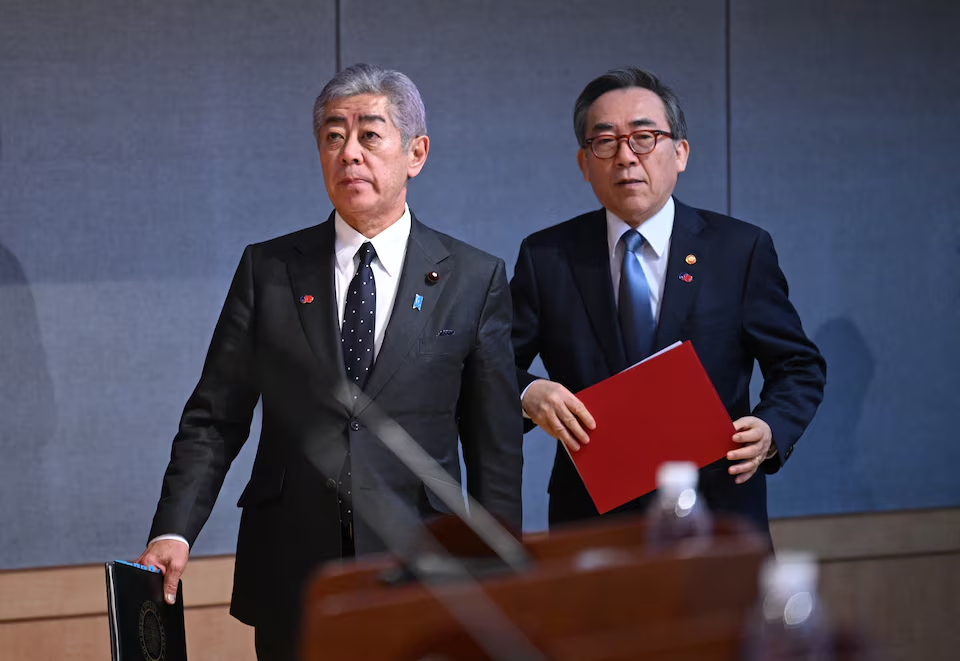North Korea’s foreign ministry declared on Tuesday its intention to continue bolstering its nuclear capabilities, sharply criticizing a recent joint commitment made by the United States, South Korea, and Japan aimed at denuclearization
The tension escalated following discussions held on Saturday among U.S. Secretary of State Marco Rubio, South Korean Foreign Minister Cho Tae-yul, and Japanese Foreign Minister Iwaya Takeshi at a security conference in Munich. During this meeting, the three diplomats issued a statement reaffirming their collective dedication to achieving North Korea’s complete denuclearization.
In response, Pyongyang’s foreign ministry vehemently condemned the trilateral pledge as an “outdated” and “absurd” approach. North Korean officials characterized the denuclearization efforts as misguided, cautioning against what they deemed “foolish acts inciting collective hostility and conflicts.” The rhetoric underscores the deepening chasm between the North and the three allied nations, particularly in light of their ongoing diplomatic efforts to address nuclear proliferation on the Korean Peninsula.
An unnamed spokesperson from North Korea’s foreign ministry articulated the regime’s stance, stating that as long as what it perceives as hostile threats from the U.S. and its allies persist, the Democratic People’s Republic of Korea (DPRK) will view its nuclear arsenal as essential for national defense. The spokesperson emphasized that the nuclear weapons are not only a means of protecting the nation’s sovereignty but also a legitimate form of self-defense as enshrined in the country’s constitution.
This declaration signals a steadfast commitment by North Korea to enhance its military capabilities, particularly its nuclear forces, despite international pressures and sanctions aimed at curbing its nuclear ambitions. The statement reflects a broader strategy by the North Korean regime to assert its sovereignty and independence in the face of what it considers external aggression.
The situation remains tenuous as global powers continue to grapple with the North Korean nuclear dilemma. The U.S., South Korea, and Japan have maintained that denuclearization is critical for ensuring regional security and stability. However, North Korea’s response indicates that it views its nuclear program as a vital deterrent against perceived threats, particularly from the U.S. and its allies in the region.
Analysts suggest that North Korea’s latest pronouncement may further complicate diplomatic efforts aimed at resolving the nuclear standoff. The ongoing tensions underscore the challenges faced by international negotiators seeking to engage Pyongyang in meaningful discussions regarding its nuclear program.
The backdrop to this diplomatic friction is a long history of conflict and mistrust between North Korea and its neighbors, particularly following a series of missile tests and nuclear detonations by the North. These actions have drawn widespread condemnation and intensified sanctions from the international community, which continues to call for a peaceful resolution to the crisis.
As the situation evolves, the international community will be closely monitoring North Korea’s actions and statements, particularly in light of the upcoming diplomatic engagements. The prospect of renewed negotiations remains uncertain, as both sides appear entrenched in their positions.
In conclusion, North Korea’s commitment to enhancing its nuclear capabilities, coupled with its vehement rejection of the U.S.-led denuclearization efforts, highlights the ongoing complexity of the geopolitical landscape in East Asia. As tensions mount, the potential for further escalation remains a pressing concern for regional and global stability. The world watches as the dynamics of this situation unfold, with the hope that dialogue may eventually prevail over discord.


